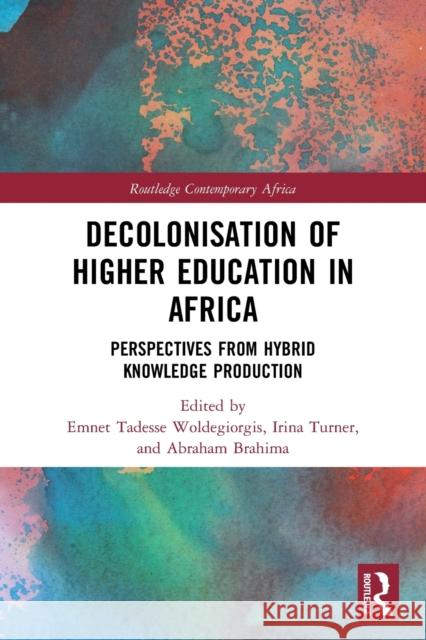Decolonisation of Higher Education in Africa: Perspectives from Hybrid Knowledge Production » książka
Decolonisation of Higher Education in Africa: Perspectives from Hybrid Knowledge Production
ISBN-13: 9780367688325 / Angielski
Decolonisation of Higher Education in Africa: Perspectives from Hybrid Knowledge Production
ISBN-13: 9780367688325 / Angielski
(netto: 199,71 VAT: 5%)
Najniższa cena z 30 dni: 196,40
ok. 22 dni roboczych.
Darmowa dostawa!
This book discusses the status and importance of decolonisation and indigenous knowledge in academic research, teaching, and learning programmes and beyond. Taking practical lessons from a range of institutions in Africa, the book argues that that local and global sciences are culturally equal and capable of synergistic complementarity and then integrates the concept of hybrid science into discourses on decolonisation. The chapters argue for a cross-cultural dialogue between different epistemic traditions and the accommodation 'Indigenous' knowledge systems in higher education. Bringing together critical scholars, teaching and administrating academics from different disciplines, the chapters provide alternative conceptual outlooks and practical case-based perspectives towards decolonised study environments. This book will be of interest to researchers of decolonisation, postcolonial studies, higher education studies, political studies, African studies, and philosophy.
This book discusses the status and importance of decolonisation and indigenous knowledge in academic research, teaching, and learning programmes and beyond.
Taking practical lessons from a range of institutions in Africa, the book argues that that local and global sciences are culturally equal and capable of synergistic complementarity and then integrates the concept of hybrid science into discourses on decolonisation. The chapters argue for a cross-cultural dialogue between different epistemic traditions and the accommodation 'Indigenous' knowledge systems in higher education. Bringing together critical scholars, teaching and administrating academics from different disciplines, the chapters provide alternative conceptual outlooks and practical case-based perspectives towards decolonised study environments.
This book will be of interest to researchers of decolonisation, postcolonial studies, higher education studies, political studies, African studies, and philosophy.











